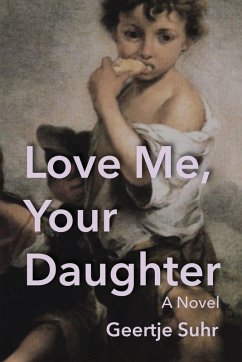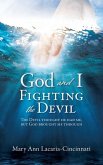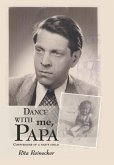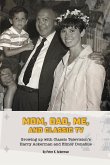After numerous volumes of poetry and short stories as well as two novels, Geertje Suhr presents here a special kind of poetic autobiography: very personal and razor-sharp close to her subjects, in her well-known, witty and humorous style. [...]Countless characters appear in this book, real and certainly fictional, family, friends, relatives, acquaintances, countless places such as Prague, Oldenburg, Hamburg, Lüneburg, Hanover, Lausanne, Bunten, Paris, Chicago. [...]Gorda often appears comically funny and disturbingly angry at the same time. Only great writers achieve this rare effect with their characters. [...]Alongside humor with a deeper meaning are serious truths [and] the narrator repeatedly delves into Gorda's multi-faceted family history. The reader learns about the biological father, who worked for Eichmann for a time, and about the stepfather. The latter takes part in the general silence of Germany after the war and the silence of the mother. [...]At the end of the narrator's diary [...] a furious chapter emerges like a slap in the face. No longer as Gorda, but as Geertje, the author writes about what has plagued, shocked, and sickened her for many years. [This last chapter] deals with the guilt that Germans bear and that many who were born post-war, repress, reject, accept, and suffer from. [...] Many of Suhr's contemporaries and peers will identify with her as she learns about her biological father at the age of eight and the facts about the persecution of the Jews as a teenager. The questions and hesitant answers between daughter and mother are ironically fractured. It was to take almost half a century before she learned the full truth through certain documents. At the age of sixteen, Geertje Suhr came to California as an exchange student and learned many new things about the subject there and then. Much later, she asked uncomfortable questions in Germany and received no honest answers.Geertje Suhr challenges us with these brilliant last thirty-five pages of the book. She and her readers once again experience a purification. Many new questions arise. And every time the author has to answer "I don't know," new doors open into the horrific past. With all her precise observations, including the repetitions, exaggerations, and understatements without which people do not learn, Geertje Suhr succeeds in writing a radically honest autobiographical novel, brilliantly presented.Irmgard E. Hunt, Professor EmeritaColorado State UniversityDepartment of World Languages and Cultures & Literatures
Hinweis: Dieser Artikel kann nur an eine deutsche Lieferadresse ausgeliefert werden.
Hinweis: Dieser Artikel kann nur an eine deutsche Lieferadresse ausgeliefert werden.









